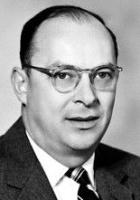| www.tmatlantic.com
Test & Soldering Equipment On-line Store |
|
D.E.V.I.C.E. (Wiki)Calculators Services |
|||||
Filter by first letter
|
Bardeen, John
John Bardeen was born on May 23, 1908. John Bardeen earned bachelor’s and master’s degrees in electrical engineering from the University of Wisconsin in Madison and obtained his doctorate in 1936 in mathematical physics from Princeton University. A staff member of the University of Minnesota, Minneapolis, from 1938 to 1941, he served as principal physicist at the U.S. Naval Ordnance Laboratory in Washington, D.C., during World War II. After the war John Bardeen joined the Bell Telephone Laboratories, where together with Walter Brattain, and William Shockley conducted research on the electron-conducting properties of semiconductors. On Dec. 23, 1947, the three scientists unveiled the transistor, which ushered in the electronic revolution. The transistor replaced the larger and bulkier vacuum tube and provided the technology for miniaturizing the electronic switches and other components needed in the construction of computers. In the early 1950s John Bardeen resumed research he had begun in the 1930s on superconductivity, and his Nobel Prize-winning investigations provided a theoretical explanation of the disappearance of electrical resistance in materials at temperatures close to absolute zero. The BCS theory of superconductivity (from the initials of Bardeen, Cooper, and John Robert Schrieffer) was first advanced in 1957 and became the basis for all later theoretical work in superconductivity. Bardeen was also the author of a theory explaining certain properties of semiconductors. John Bardeen served as a professor of electrical engineering and physics at the University of Illinois, Urbana-Champaign, from 1951 to 1975. John Bardeen died of heart disease at age 82 at Brigham and Women's Hospital in Boston, Massachusetts, on January 30, 1991. |
|
Site mapPrivacy policyTerms of Use & Store PoliciesHow to BuyShippingPayment |

























